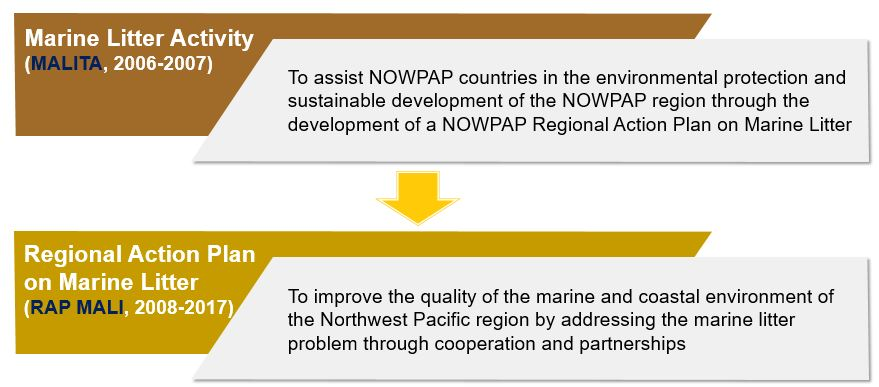
Marine litter is now recognized as a major problem of marine pollution that destroys the ecological, economic and cultural values of the marine environment. Marine litter is mostly persistent synthetic material, non-degradable plastic, metal and glass, which can remain in the marine environment for many years. These materials cause injure and/or death of human and other living thing by entanglement and ingestion. For instances, animal feeds on marine debris such as plastic bag looks like food which can lead to starvation or malnutrition. Abandoned fishing net traps a number of animals resulting deaths consequentially. Vessels can also be damaged by buoyant materials which needed considerable costs to repair.

In response to growing concern related to marine litter, the NOWPAP activities have been initiated since November 2005 when the project proposal was approved at the Tenth NOWPAP Intergovernmental Meeting. The first phase, called Marine Litter Activity (MALITA), was completed by the end of 2007. The overall objective of the MALITA project was to develop NOWPAP Regional Action Plan on Marine Litter (RAP MALI) in order to promote the environmental protection and sustainable development of the NOWPAP region. The second phase of NOWPAP marine litter activities is the implementation of NOWPAP RAP MALI which started in March 2008. Some activities carried out during the MALITA project continue during the RAP MALI implementation.
MERRAC has carried out relevant activities on sea-based marine litter under the MALITA project and RAP MALI implementation.
Click to see more of UN environment’s works with regional seas.
UN environment
Maine Litter














